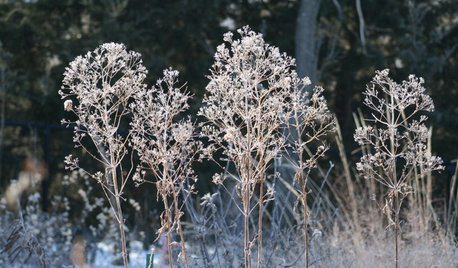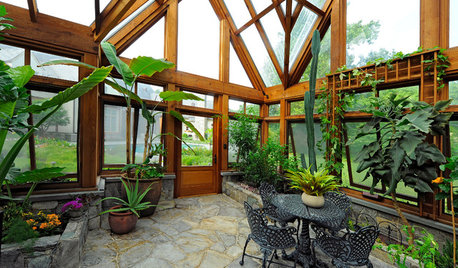adding worms to a garden
trumpwm
11 years ago
Related Stories

GARDENING GUIDESHouzz TV: Make a Worm Bin for Rich Soil and Happy Plants
A worm-powered compost bin that can fit under a sink turns food scraps into a powerful amendment for your garden. Here’s how to make one
Full Story
MOST POPULARWhat to Know About Adding a Deck
Want to increase your living space outside? Learn the requirements, costs and other considerations for building a deck
Full Story
GREAT HOME PROJECTSWhat to Know About Adding a Backyard Bocce Ball Court
A regulation court in a relaxed setting helps you get the most from the Italian pastime. Here's what it takes to build one at home
Full Story
REMODELING GUIDESAdding On: 10 Ways to Expand Your House Out and Up
A new addition can connect you to the yard, raise the roof, bring in light or make a statement. Which style is for you?
Full Story
Adding Farmhouse Charm to Your Home
Use Burlap, Distressed Furniture and Botanical Prints to Create a Casual Space
Full Story
MOST POPULARThe 25 Most Popular Photos Added to Houzz in 2013
See the newly uploaded images of kitchens, bathrooms, bedrooms and more that Houzz users really fell for this year
Full Story
WINTER GARDENING10 Native Wildflowers to Beautify Your Winter Garden
They stand strong in wind, feed wildlife and are easy to grow. But you may want to add these plants for their looks alone
Full Story
EDIBLE GARDENSThe Enticing Garden: How to Grow Bananas
Sweeten your dining table with surprising flavors of banana cultivars while adding tropical flavor to your garden
Full StoryMore Discussions








Kimmsr
coachgrumpy
Related Professionals
Holly Springs Landscape Architects & Landscape Designers · Ashburn Landscape Architects & Landscape Designers · Ballenger Creek Landscape Architects & Landscape Designers · Manorville Landscape Architects & Landscape Designers · Roxbury Crossing Landscape Architects & Landscape Designers · Aurora Landscape Contractors · Surprise Landscape Contractors · El Mirage Landscape Contractors · Huntley Landscape Contractors · North Plainfield Landscape Contractors · Pleasant Grove Landscape Contractors · River Ridge Landscape Contractors · Vacaville Landscape Contractors · Hyattsville Decks, Patios & Outdoor Enclosures · New Lenox Decks, Patios & Outdoor Enclosuresglib
gardenlen
luckygal
karen64
Raw_Nature
robertz6
Kimmsr
petrock1963
socks
Sunraya
luckygal
robertz6
trumpwmOriginal Author